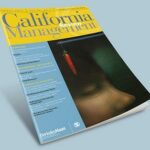A new AccountAbility report released today calls on companies to move beyond basic compliance approaches in dealing with social and environmental issues and to integrate them into their core business strategies and practices. "The Materiality Report: Aligning Strategy Performance and Reporting", prepared by AccountAbility in association with BT Group plc and LRQA, provides a toolkit for managers to work out which issues are material to their underlying performance, and encourages business to focus on these issues in their public reporting.
AccountAbility has been a leading voice in the materiality debate since the late 1990s. Materiality was a core principle of the AA1000 Framework published in 1999 and has remained at the core of the AA1000 Series since then.
AccountAbility pushed the debate forward in 2003 with the Publication of Redefining Materiality – a research report that examined for the first time the methodological issues related to determining material sustainability issues. This work was then captured in the AA1000 Assurance Standard also published in 2003 and pushed further in the Guidance Note on the Three Principles used in AA1000AS published in 2006.
With the ever-increasing uptake of sustainability reporting and assurance standards, it became obvious that much more work needed to be done on the methodology. We needed to capture innovative practice and provide a more systematic process for determining materiality. This new framework methodology will not only help organisations that use the AA1000 Series, but also those that apply the GRI G3 – which now requires that organisations determine their material issues – and a range of other standards and guidelines.
The Materiality Report: Aligning Strategy Performance and Reporting, prepared by AccountAbility in association with BT Group plc and LRQA, provides a toolkit for managers to work out which issues are material to their underlying performance, and encourages business to focus on these issues in their public reporting.



